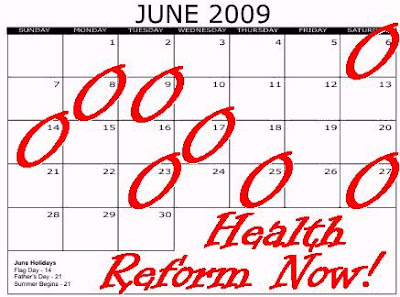UPDATE: I unfairly maligned Walgreens' nurse-practitioner for not doing any tests; in subsequent research I learned that my new illness is best diagnosed clinically in its early stages. On the other hand, the dosage of antibiotics she prescribed was too little, as I found out when I phoned my doctor. He told me to take the pills twice as often and twice as long, and graciously phoned in another prescription, so I was spared the price of an office visit. However, he said that if that doesn't clear up the symptoms, I will need to see a specialist.
(AP) — "Walk-in retail clinics in grocery and drugstore chains can help the uninsured find health care, proponents say. But a new study suggests most retail clinics aren't in the poorest neighborhoods.
"Like most businesses, they go where the money is — to more affluent neighborhoods, which already happen to be well-served by other medical resources....
"The study's results suggest financial incentives may be needed to lure the clinics to low-income neighborhoods, said study author Dr. Craig Pollack of the University of Pennsylvania....
"Open late and on weekends, the clinics use nurse practitioners to give shots and treat minor ailments such as sore throats and rashes. Visits typically cost $40 to $75, and prices are posted so consumers know what they're paying. People pay cash or use insurance....
"Industry leaders said retail clinics were designed to offer convenient care, not as the health care system's safety net. But they play a role, industry officials acknowledge. The clinics' own research shows 30 to 40 percent of patients say they don't have a primary care provider, said Tine Hansen-Turton of the Convenient Care Association, a trade group representing most of the clinics...."
Retail clinics like
Walgreens' Take Care are quick and convenient. They're open evenings and weekends, and you don't need an appointment. If you don't have insurance, they're somewhat
less expensive than a visit to most doctors.
Under our present health-care system, they do have a role. But they're a stop-gap, not a replacement for a primary-care physician. If you catch the flu or sprain your ankle on the weekend, they can save you a trip to the emergency room. But if your flu turns into pneumonia, or the ankle remains weak and needs physical therapy, they won't offer you followup care. For that matter, they can't x-ray your ankle to see if it's actually broken. If you have a chronic condition that needs monitoring, they don't do that, either.
* * *
Recently, I visited a Take Care clinic because of an illness I self-diagnosed ... with help from Dr. Google. Dr. G told me that it's one of those things that can get very bad if left untreated, so I thought I'd better get checked out. I didn't want to go to the
Stroger Hospital emergency room, and the retail clinic seemed like the least expensive alternative.
The nurse-practitioner took a short medical history, did a very brief exam, listened to my description of my symptoms, said it looked as if I was right, and prescribed antibiotics. It cost $68.
She did no tests. She had to look up the correct antibiotic in a book. I asked about followup care, and she advised me to see a regular doctor once I'd finished the medication.
If Dr. Google and Take Care's APN are right, the pills will likely help me. If they're wrong, I'll have had — at a minimum — an unnecessary course of antibiotics that will do me no good.
Would my treatment have been different had I gone to the doctor I used to see when I had insurance? Perhaps not. But I bet he'd have ordered a test before writing a scrip, and I'd know for certain whether I had the disease I feared, or something else.
Of course, his price would have been higher, too.
* * *
Even for the limited ailments and injuries they diagnose and treat, retail clinics aren't a substitute for having a regular doctor who knows you and your history. If you rely on on such clinics for your medical care, it's very possible that underlying problems will go on unrecognized. And, as this new study notes, they aren't even convenient for the people who most need health care options.
To me, the existence of these clinics is just another symptom of our spotty, patchwork health-care system. Rather than offer financial incentives to create more for-profit retail health clinics in poor, underserved areas, it makes more sense to set up nonprofit or government-run clinics and offer incentives to doctors to work there.
Why don't we have a medical version of
ROTC in the United States? In Australia,
government scholarships subsidize the training of medical students who agree to spend six years working in underserved areas once they complete their schooling.
Somehow, it seems typical of the state of America now that our government trains young people to make war, but not health care.















